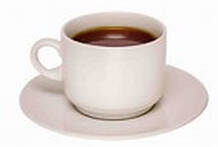|
|
 Over 1 billion people all over the world, drink coffee daily ! A number of studies have been done touting the benefits of drinking coffee and how it can benefit your heart. On the other hand, drinking too much coffee can actually increase your risk of heart disease. Researchers explored the health and self-reported drinking habits of more than 360,000 participants from the UK Biobank database, working to learn how coffee intake may affect a person’s plasma lipid profile. Overall, the team found that heavy coffee consumption which means drinking at least six cups per day—is associated with increasing the amount of lipids in the blood, leading to a greater risk of cardiovascular disease. These same researchers also discovered that with each additional cup of coffee, lipid levels were pushed even higher. There’s certainly a lot of scientific debate about the pros and cons of coffee, but while it may seem like we’re going over old ground, it’s essential to fully understand how one of the world’s most widely consumed drinks can impact our health. Drinking a moderate amount of coffee may reduce the risk of heart disease, however, drinking large amounts of coffee, that means more than 750ml or more per day of coffee which is not paper-filtered may increase "bad" cholesterol levels. In another study researching the relationship between coffee consumption and cardiovascular disease - they found that drinking three and a half cups of coffee (caffeinated or decaffeinated) per day was associated with a 15% decreased risk of cardiovascular disease compared to drinking no coffee. The Italians have their own study which shows that drinking half a cup of espresso per day reduces your risk of death from heart disease by 37% and 28% reduced risk of death from all causes, compared to no or little coffee consumption. For the hard core coffee drinkers - unfortunately drinking more than 4 ounces or 120ml of espresso per day did not give you that extra edge of further reducing the risk of dying from heart disease or any other disease for that matter. The Swede’s found out that if you have already had a heart attack, it is best to drink 2 cups of caffeinated coffee per day and you give yourself a 40% less chance of dying from cardiovascular disease. Unfiltered coffee has been shown to increase cholesterol. You would have to drink more than 6 - 125ml cups per day to increase your total cholesterol by 20 mg/dl out of which the 16 is LDL the bad cholesterol and that triglycerides were also raised. On the other hand, drinking only 1 to 3 small cups of coffee per day was not associated with an increase in triglycerides or the "bad" LDL cholesterol levels and was linked with only a modest 4 mg/dL increase in total cholesterol. Bear in mind that most coffee mugs hold between 325 to 475ml of coffee, with some holding up to 590 ml . Now let’s get to the types of coffee… Unfiltered coffee seems to be worse for your heart compared to filtered coffee. Unfiltered coffee contains cafestol and kahweol, two cholesterol-raising chemicals found in coffee beans, while coffee filtered through a paper filter (including disposable K-Cups) contains only very small amounts of these constituents. Due to its cafestol and kahweol content, unfiltered coffee — including French press coffee, Turkish or Cyprus coffee, espresso, mocha, moka pot coffee, or coffee prepared using a metal strainer rather than a paper filter — may increase cholesterol or triglyceride levels. It is unlikely that the use of coffee additives (i.e., milk, creamer or sugar) is responsible for this association, as most of the reviewed studies controlled additive use. There is also evidence that if you stop drinking coffee it helps to reduce your cholesterol levels. Now what if we have a cup of coffee and a cigarette ? A Greek study showed that coffee together with smoking increases arterial stiffness, which again is not a good thing as it leads to heart disease. So, if we were to sum it up. Coffee in moderation of up to 3 cups providing not more than 400mg of caffeine per day is quite safe and beneficial for your heart, brain, physical performance, mental focus and weight loss. If you’re pregnant don’t have more than 200mg of caffeine per day or avoid it totally. And be aware that consumption of large amounts of caffeine as supplements or energy drinks carry their own risks - possibly because of the rapid ingestion of caffeine.
0 Comments
Leave a Reply. |
AuthorBarbara is a qualified nutritionist offering Health, Nutrition & Lifestyle Counseling. She gives Healthy weight loss advice and promotes the Mediterranean diet. She is the author of the Med Life Diet - creating healthy lifestyle habits and attitudes for life ! Archives
April 2024
|
 RSS Feed
RSS Feed
